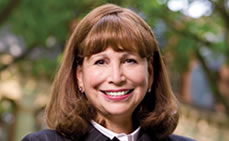GUEST EDITORIAL
Teachers College President Speaks Out Against Release of Teacher Rankings
By Susan H. Fuhrman, Ph.D.
 There is no evidence that evaluating teachers solely on the basis of their students’ performance on standardized tests improves schools, and releasing the yearly “rankings” of individual teachers is demeaning and demoralizing.
There is no evidence that evaluating teachers solely on the basis of their students’ performance on standardized tests improves schools, and releasing the yearly “rankings” of individual teachers is demeaning and demoralizing.
Yes, teachers should be judged on their students’ progress and achievement. However, as a 2010 compilation of research by the National Research Council and the National Academy of Education demonstrated, “value-added” methodologies can’t control for many factors that affect students’ performance on standardized tests.
For example, if administrators routinely assign struggling students either to the “best” teachers (as one might hope) or to inexperienced teachers (as too often is the case), those teachers’ measured gains in student achievement typically suffer in comparison to those of their colleagues.
Value-added measures also fail to capture or to take into account a multitude of other factors that drive student performance, such as the effect of prior-year teachers on students’ test scores, or the different content of many tests from one grade to the next. Nor do these measures account either for classrooms with high turnover, which frequently have an adverse impact on students’ test scores, or for small classes in which a few students’ scores can distort the size of overall gains.
Until we can evaluate teachers with better measures of their actual classroom work, it simply is bad policy to rely too heavily on the blunt instrument of standardized test results to assess a teacher’s effectiveness, particularly when individual reputations and livelihoods are so clearly at stake. #
Susan H. Fuhrman is the president of Teachers College, Columbia University
